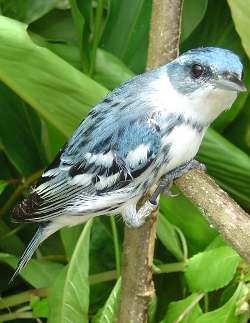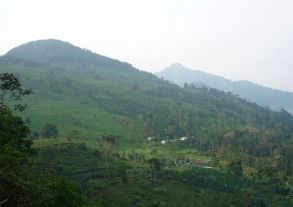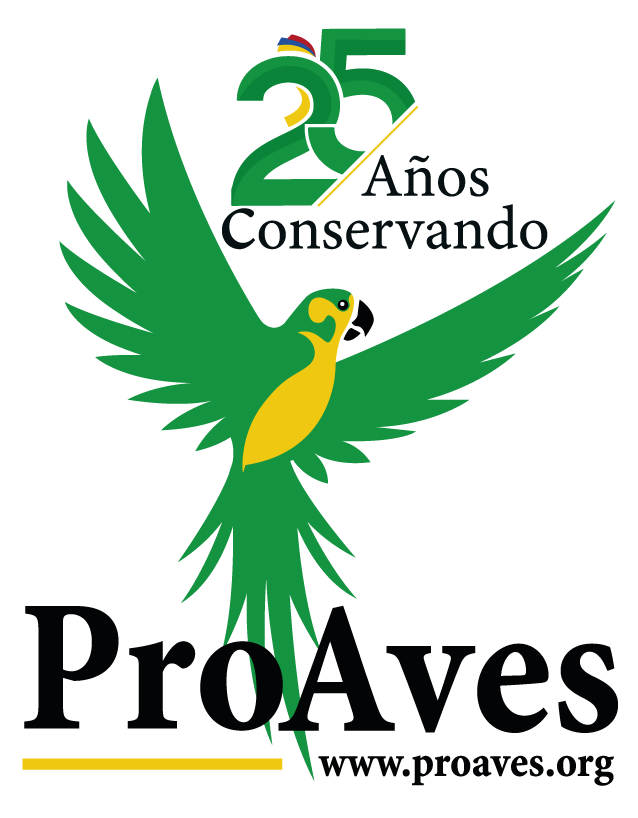The conservation effort resulted in the acquisition of nine new properties that total about 672 acres. Those new properties now make up the western flank of the Pauxi Pauxi Reserve that was established in 2007 by the same partner groups and now totals about 4,470 acres. The purchased area is located in north central Colombia, about 150 miles north of Bogota in an area of lush tropical vegetation. The newly acquired land is part of an imposing, mountainous outcropping called Cerro de la Paz along the Magdalena River Valley west of the chain of the Andes Mountains, an area that has been heavily deforested due to agricultural and urban expansion.

“As migratory birds head south through the degraded river valley, the Pauxi Pauxi Reserve is a forested haven. We are thrilled to expand available habitat for these weary avian travelers”, said David Younkman, Vice President for Conservation at ABC.
“Cerro de la Paz and the Pauxi Pauxi Reserve may be one of the best migrant hotspots in Colombia based on our surveys,” said Alonso Quevedo, Executive Director of ProAves. “It is fantastic that our conservation efforts to protect endangered resident species, such as the Helmeted Curassow, can also ensure vital habitat for dozens of migratory species.”
The Cerulean Warbler was formerly one of the most abundant breeding warblers in the Ohio and Mississippi River Valleys in the U.S., but is now one of the country’s most imperiled migrant songbirds. Overall, Cerulean Warbler numbers have plummeted by almost 70% since 1966. This elusive bird winters in the northern Andes, breeds from the Great Lakes region to Georgia, and west from Wisconsin to Louisiana, with particular concentrations in the Appalachians and Central Hardwoods region. Both its breeding and wintering habitat are being lost.

In addition to providing habitat for the Cerulean Warbler, these properties represent a crucial area of wintering habitat for numerous other neotropical migrating birds, such as Tennessee, Black-and-white, Mourning, Canada, Blackburnian, and Black-throated Blue Warblers, American Redstart, Northern Waterthrush, and Rose-breasted Grosbeak. The Critically Endangered Blue-billed Curassow and Endangered Helmeted Curassow are also reported from this area in recent years, although confirmation is pending.
In addition to protecting key wintering habitat, the Pauxi Pauxi Reserve also provides another strategic function – it anchors the northern end of the Cerulean Warbler Corridor in Colombia. This is an area that is seeing increased agricultural expansion and ProAves is assisting local farmers in reducing deforestation and promoting shade coffee and cacao, both which benefit migratory birds. For example, ProAves owns and operates small coffee and cacao farms that demonstrate to neighboring farmers some ways to enhance wildlife conservation and maximize profits.
Current conservation efforts in the reserve include reforesting habitat by building a tree nursery on the property. Local residents have been hired to help find seeds, maintain saplings and will begin planting by mid-2013.To protect the area from logging and unauthorized farming, a guard has been hired, and an existing structure is being renovated to serve as a guardhouse. Two small cacao farms (16 acres) on the property will provide ongoing income to sustain the management (guard salary). Also camera traps are being installed on the property to confirm the presence of Helmeted, and possibly Blue-billed, Curassow among other important wildlife.
This region faces other threats as well: an enormous hydroelectric dam on the Sogamoso River is underway which will flood a large tracts of forest, and the company is buying land and relocating families upslope. This will bring, increased pressure on the reserve’s buffer zoneand drive wildlfieinto the refuge, making the protected habitat even more important.
With the support of

